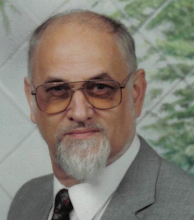 There comes a time in most people's lives when they have to move house and take all their loved possessions with them - and what an upheaval that can be! Unfortunately some people have a perception of the e-Portfolio as being that 'removal van' or 'pantechnicon' - which is used to transport every bit and piece of value or even no-value - just sentimental rubbish that one cannot throw away. However, the analogy gets worse! The learner decides that rather than unloading all their stuff, every bit of coursework, every idle amusement, every item of correspondence shall all be kept on board - because, after all, they are not stopping here but plan to move on again. And the effort of unloading and loading up again is just too much bother.
There comes a time in most people's lives when they have to move house and take all their loved possessions with them - and what an upheaval that can be! Unfortunately some people have a perception of the e-Portfolio as being that 'removal van' or 'pantechnicon' - which is used to transport every bit and piece of value or even no-value - just sentimental rubbish that one cannot throw away. However, the analogy gets worse! The learner decides that rather than unloading all their stuff, every bit of coursework, every idle amusement, every item of correspondence shall all be kept on board - because, after all, they are not stopping here but plan to move on again. And the effort of unloading and loading up again is just too much bother.
Others prefer to travel light, only carrying with them the immediate essential tools and equipment currently used in their studies. They have a more scatter-brained approach to learning - leaving a never-ending trail of artefacts scattered, on their academic travels, around the universe - sometimes called 'cloud computing'. The trouble with this approach, as any parent knows, is that things get far too easily misplaced or even lost for ever. For those who haven't read my previous jottings on 'transition' the potential amount of travelling the learner could experience is illustrated here.
 As one gets older and possibly not much wiser there is the temptation to carry around even more clutter, 'just in case'. However, as we make our way to yet another presentation or job interview we begin to understand the need to cut our 'showcase' down to the bare minimum with which our audience can cope. And this is so true of our e-Portfolios. eFolio, in particular, is capable of displaying only what we want to show, uncluttered by ephemera or irrelevancies.
As one gets older and possibly not much wiser there is the temptation to carry around even more clutter, 'just in case'. However, as we make our way to yet another presentation or job interview we begin to understand the need to cut our 'showcase' down to the bare minimum with which our audience can cope. And this is so true of our e-Portfolios. eFolio, in particular, is capable of displaying only what we want to show, uncluttered by ephemera or irrelevancies.I have seen far too many blogs containing discussions about how much space on a school's servers their e-Portfolios should take. Similarly, there are debates about how long students' artefacts should remain on the school's servers once the students have left. Surely, these are all irrelevancies when considering the fundamental purposes of an e-Portfolio? It all comes down to an understanding of one of my several mantras:
"Let the VLE do what it does best and
leave the e-Portfolio to do what it can best do!"
leave the e-Portfolio to do what it can best do!"
This approach leaves all coursework, past and present, on the VLE's server alongside the specialist programs, assignment briefs, schemes of work, assessment tools, on-line reporting and all the other mechanics needed to run an effective 'electrified' school. How long these 'school owned' artefacts are kept is down to the institution's Policies.
The e-Portfolio, on the other hand, should be seen as belonging to the learner and need only contain those artefacts and tools that the student considers needful in their present circumstances. - Anything that rightfully belongs to the learner and is no longer immediately needed can be off-loaded to one's own PC or Tb backup for safe keeping.
Again, the e-Portfolio should be seen as a flexible and adaptable system. As much as any young adult may change friends or experience the coming and going of different teachers, the e-Portfolio should be flexible enough to adapt to the differing audiences who are permitted to share in the learner's activities. As children steadily mature into adulthood, so too, their affections and loyalties will change and their e-Portfolios should be capable of reflecting that change. It is not so much the opportunity to publicise one's avowed following of a film star, pop-group or football team so much as the fact that the e-Portfolio is capable of reflecting something of one's deeper self image.
The choice of media is so very important. Certainly we should avoid those e-Portfolio systems that are so heavily document-based as to provoke the audience to shout out, "I cannot understand what you are saying for the mass of words you write." The colour schemes, choice of fonts or avatars and the selection of recorded interviews, video-clips or SlideShares one may include will no doubt say more about a person than the text they write.




No comments:
Post a Comment